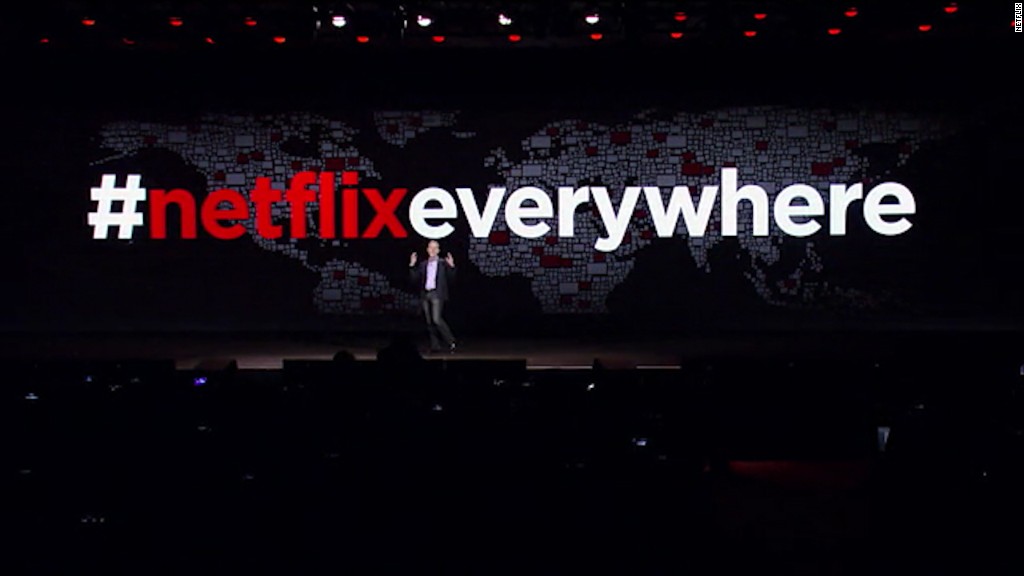
What goes up must come down. Netflix investors are learning that the hard way this year.
Netflix (NFLX) was the best performer in the S&P 500 in 2015, surging nearly 130%. But shares are down more than 20% so far in 2016.
That makes Netflix the worst performer of the so-called FANG stocks of tech -- Facebook (FB), Amazon (AMZN), Netflix and Google (GOOGL), whose corporate name is now Alphabet.
Netflix's shares plunged last month after the streaming video king issued a forecast for international subscriber growth that underwhelmed Wall Street.
But does Netflix really have a problem attracting new customers? Or is it simply the case that the company has traded at an unsustainable price for way too long -- and that it is finally succumbing to gravity?
Related: Netflix's stock sinks on guidance
Even though Netflix has racked up a lot of buzz and critical acclaim for shows like "House of Cards," "Daredevil" and "Orange Is the New Black," investors are once again worried about the company's valuation.
Netflix trades for more than 330 times 2016 earnings estimates. That makes it the most expensive stock in the S&P 500 -- more than double the valuation of other pricey momentum stocks in the index such as Salesforce (CRM), Chipotle (CMG) and, yes, Amazon.
The premium price appears to be the biggest problem for Netflix -- not increased competition from Amazon, Hulu, Apple (AAPL) and others. (The BBC is even said to be working on a Netflix rival that's been dubbed Britflix.)
It's important to remember that investors are still expecting huge growth from Netflix. Analysts are forecasting sales growth of nearly 30% this year and another 25% in 2017.
This isn't to say that Netflix's stock should come roaring back anytime soon. It has a lot to prove in order to live up to its lofty price.
Shares aren't cheap looking at 2017 forecasts either. Netflix is still valued at more than 85 times next year's profit projections.
But the so-called smart money on Wall Street is continuing to back Netflix despite this sticker shock inducing price.
Four of the five largest institutional owners of Netflix's stock -- mutual fund giants Capital Research & Management, Vanguard, Fidelity and T. Rowe Price -- added to their Netflix holdings in the first quarter according to data from FactSet Research.
So all the worries about more rivals entering the streaming video arena may be a little overdone. A lot of high-profile investors are continuing to bet on Netflix.
Just remember that the stock isn't for the faint of heart. Shares will, like Netflix's streaming service, occasionally get stuck in buffering mode.


